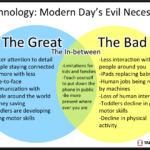In the ever-evolving world of work, technology has emerged as one of the most dynamic and sought-after career paths. With the rapid advancement of digital tools, software, artificial intelligence (AI), and data science, technology careers are being touted as not only lucrative but also future-proof. But is technology the right career path for everyone? In this article, we’ll explore key factors to consider before diving into the tech industry.
1. The Appeal of Technology Careers
The tech industry has many appealing aspects. Here’s why it attracts a large number of aspiring professionals:
High Demand and Job Security
Technology is deeply integrated into virtually every industry. From healthcare and finance to retail and entertainment, companies rely on technological solutions to stay competitive and efficient. As a result, skilled tech professionals—such as software engineers, data analysts, cybersecurity experts, and AI specialists—are in high demand. This demand translates to job security, with a wide array of career opportunities in both established companies and emerging startups.
Lucrative Salaries
In general, technology jobs offer competitive salaries, often higher than many other industries. According to reports, tech professionals can earn a substantial income, especially as they progress to senior roles or specialize in high-demand fields like machine learning or cloud computing.
Opportunities for Growth and Innovation
Technology is constantly evolving, making it an exciting and challenging field. If you’re someone who thrives on innovation and loves problem-solving, the tech world provides endless opportunities for learning and growth. Whether you’re developing new software, improving cybersecurity measures, or optimizing data systems, there is always something new to explore.

2. Skills and Mindset Needed for Technology Careers
While the benefits are clear, the question remains: Do you have what it takes to succeed in the technology sector? Here are some of the key skills and traits required:
Technical Proficiency
Depending on your chosen career within technology, you’ll need to have a solid understanding of various technical skills. For example, software developers need to be proficient in programming languages like Python, Java, or JavaScript. Data scientists should be well-versed in statistical analysis and machine learning techniques, while IT professionals might need expertise in networking and cloud platforms.
Fortunately, many of these skills can be learned through formal education or self-paced courses. Platforms like Coursera, edX, and coding boot camps offer excellent resources for building technical expertise.
Problem-Solving Skills
The ability to solve complex problems is crucial in the tech industry. Whether you’re troubleshooting code errors or designing a system to meet a business’s needs, you’ll need to approach challenges with creativity and analytical thinking. If you enjoy puzzles and problem-solving, this aspect of tech might be particularly engaging for you.
Adaptability and Curiosity
The fast-paced nature of technology means that you’ll constantly be learning new tools, languages, and methodologies. If you enjoy keeping up with emerging trends and adapting to new technologies, you’ll be more likely to thrive in this field. A growth mindset is essential—technology professionals who are always curious and open to change tend to advance more quickly than those who aren’t.
Communication Skills
While technical skills are essential, tech professionals also need to communicate effectively. Whether it’s explaining complex concepts to non-technical stakeholders, collaborating with teammates, or presenting ideas, strong communication skills are critical for success. In tech, it’s not just about being the best coder; it’s also about how you work with others to bring solutions to life.
3. Consider Your Interests and Goals

Not everyone is suited for a career in technology, and that’s okay. If you’re weighing your options, take some time to consider your personal interests and long-term career goals.
Do You Enjoy Working with Technology?
Consider whether you’re genuinely passionate about technology or if you’re primarily motivated by the idea of a high salary and job security. A successful career in tech often requires dedication and a love for learning and creating with technology. If you’re just interested in technology as a means to an end, you might find that the daily work doesn’t fulfill you in the long term.
Work-Life Balance
Tech careers can be intense, especially in roles like software engineering, data analysis, or IT support, where long hours or on-call responsibilities may be required. If maintaining a strong work-life balance is essential for you, think carefully about the demands of different tech jobs. While some roles, like those in product management or user experience (UX) design, may offer more flexibility, others can be quite high-pressure.
Future Outlook
Consider the long-term prospects of a tech career. Fields such as AI, machine learning, cybersecurity, and cloud computing are expected to grow rapidly in the coming years, while some areas—like traditional IT support—may see a slower growth rate. Think about where the industry is headed and how you might fit into that trajectory.
4. Alternative Career Paths within Technology
While traditional tech roles like software development or systems engineering are popular, there are other exciting career paths within technology that may align with your interests:
- UX/UI Design: If you’re interested in the intersection of technology and human experience, UX/UI design focuses on creating user-friendly interfaces and ensuring an optimal experience for customers using digital products.
- Data Science & Analytics: For those who enjoy working with data and uncovering trends, data science offers a compelling career. It involves analyzing vast amounts of data to derive actionable insights that can drive business decisions.
- Cybersecurity: As cyber threats continue to grow, professionals in cybersecurity play a critical role in protecting data and infrastructure. If you’re detail-oriented and enjoy identifying vulnerabilities, this might be a great fit.
- Product Management: For those who want to combine technical know-how with leadership skills, product management involves overseeing the development of products, from concept to launch. It requires a balance of technical knowledge, strategic thinking, and collaboration.

5. Making the Decision
So, is technology the right career path for you? The answer depends on your skills, interests, and career goals. If you’re excited by the idea of solving complex problems, continuously learning, and working in a high-demand field, a career in technology could be a great fit. But, it’s important to recognize that technology requires dedication, a growth mindset, and adaptability.
Before committing to this career path, take the time to explore different tech fields, assess your strengths, and perhaps try out some online courses or internships to gain hands-on experience. By doing so, you can determine if technology is the right choice for you, and if so, which specific area within the industry suits your aspirations.
Ultimately, technology offers an exciting and rewarding career path, but like any field, it’s important to understand your personal fit before making the leap.




Your comment is awaiting moderation.
Howdy just wanted to give you a quick heads up. The words in your content seem to be running off the screen in Opera. I’m not sure if this is a format issue or something to do with web browser compatibility but I thought I’d post to let you know. The design and style look great though! Hope you get the issue resolved soon. Many thanks